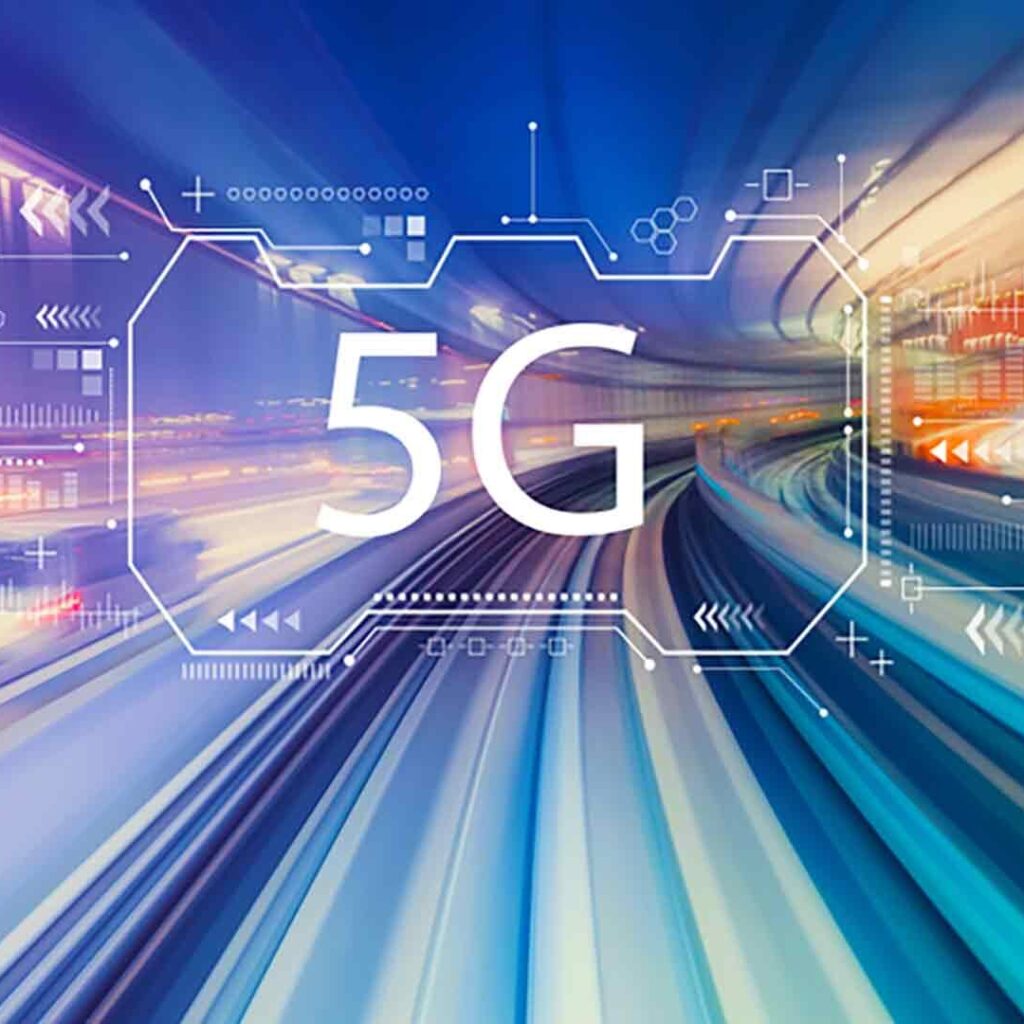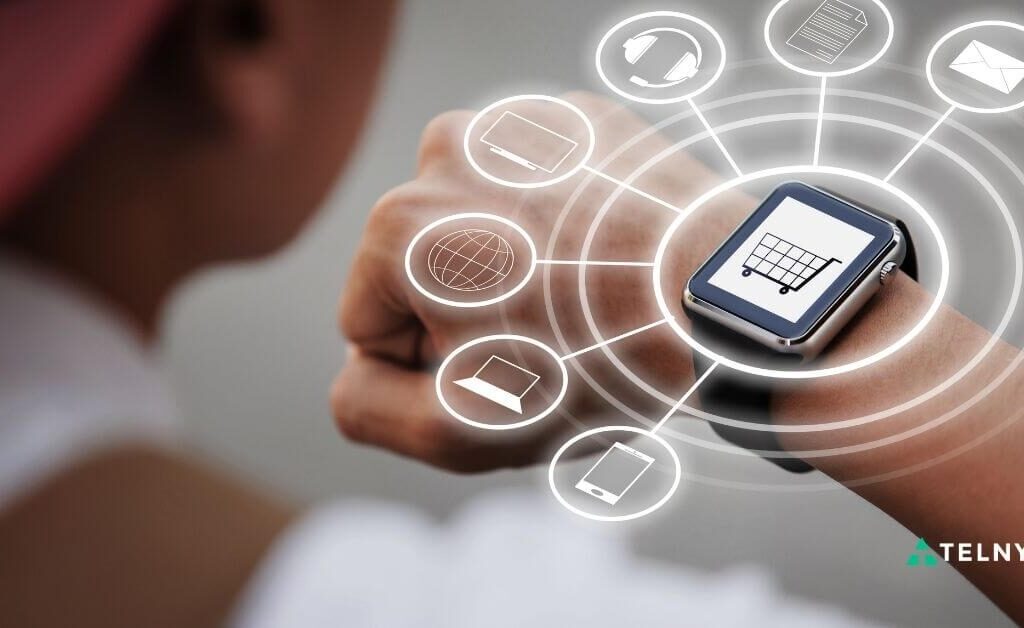
Introduction
The Impact of 5G on IoT: Imagine a world where your coffee pot starts brewing the moment you wake up, your car preps itself for your commute based on traffic conditions, and your fridge automatically reorders groceries when you’re running low. This interconnected reality, driven by everyday objects seamlessly communicating with each other, is the essence of the Internet of Things (IoT). But what if we told you this future is closer than ever, thanks to the arrival of 5G technology?
Think of 5G as the supercharged engine that will propel the IoT revolution forward. While 4G laid the groundwork, 5G brings a whole new level of speed, reliability, and connectivity, fundamentally transforming how our devices interact. Let’s dive into how 5G is poised to be a game-changer for the world of IoT.
Lightspeed Communication

Imagine a scenario where a self-driving car needs to make split-second decisions to avoid an accident. With 4G, the crucial data transfer between the car and its surroundings might experience a lag, potentially causing disastrous consequences. 5G swoops in here with its ultra-low latency, enabling near real-time data exchange. This lightning-fast communication is paramount for applications demanding immediate response, like remote surgery, autonomous vehicles, and industrial automation.
Accommodating Millions of Devices Simultaneously

Our homes are fast becoming hubs for countless smart devices, from thermostats and doorbells to speakers and appliances. 4G networks begin to buckle under the pressure of managing such a vast number of connections. 5G addresses this concern with its massive machine-type communication (mMTC) capability. Imagine a stadium filled with sensors monitoring crowd movement, energy consumption, and even concession stand inventory. 5G can efficiently handle this surge in connected devices, ensuring everything runs smoothly.
Spreading the Net
5G boasts a wider reach than its predecessor, ensuring connectivity in remote areas where 4G signals might struggle. This opens doors for large-scale IoT deployments in sectors like agriculture and environmental monitoring. Imagine a network of sensors strategically placed across farmland, collecting data on soil conditions, humidity, and crop health. 5G’s extended coverage allows for this real-time data collection, empowering farmers to make informed decisions and optimize their yields.
Cloud Computing

5G perfectly complements the potential of cloud computing. The massive amount of data generated by IoT devices can be seamlessly transferred and processed in the cloud, enabling powerful applications like real-time analytics and machine learning. Think of a smart city where traffic lights dynamically adjust based on real-time traffic data collected from connected vehicles. 5G facilitates this seamless flow of information, allowing the cloud to work its magic and optimize city operations.
Security Concerns in a Connected World

With great power comes great responsibility. As the number of connected devices explodes, security becomes a paramount concern. 5G networks are being designed with robust security features like encryption and authentication protocols to safeguard sensitive data. However, it’s crucial to remember that security is a shared effort. Manufacturers of IoT devices need to prioritize implementing strong security measures, and users must remain vigilant about protecting their devices and data.
A Glimpse into 5G-powered IoT Applications

The possibilities with 5G and IoT are truly endless. Here are a few exciting applications that are set to redefine our world:
- Smart Cities: Imagine traffic lights that adjust based on real-time congestion, waste collection optimized through sensor-based monitoring, and intelligent parking solutions that guide drivers to available spots.
- Connected Healthcare: Remote patient monitoring, real-time medical data analysis, and even the potential for robotic surgery assisted by 5G’s ultra-low latency.
- Industrial Revolution 2.0: Predictive maintenance in factories, enhanced supply chain management, and optimized resource allocation through real-time data collected from connected machines.
- Environmental Monitoring: Sensor networks can track air and water quality, monitor deforestation, and provide early warnings for natural disasters.
Related
- HP and Dell, What Brand Should you Choose??
- The Goal-Line Technology In Football
- How Technology Cured Blindness Without The Need For Surgery
- The Most Amazing Technologies Shaping Our Future
Conclusion
The convergence of 5G and IoT is poised to usher in a new era of interconnectedness, transforming how we live, work, and interact with the world around us. While challenges persist, the potential benefits are undeniable. As 5G continues to roll out and the number of connected devices surges, we can expect a future brimming with smart and efficient solutions that improve our lives in unimaginable ways. Remember, the future is being built today, and 5G is laying the foundation for a world driven by the power of the Internet of Things.
FAQs
1. Will 5G make my current IoT devices obsolete?
Not necessarily. Many existing devices might still function with 5G networks. However, newer devices designed specifically for 5G will likely offer improved performance and take full advantage of the technology’s potential.
2. Is 5G safe?
Extensive research is being conducted to ensure the safety of 5G networks. While some concerns exist regarding potential health risks, regulatory bodies are implementing strict guidelines to ensure public safety.
3. How expensive will 5G be for IoT devices?
The cost of 5G connectivity for IoT devices is expected to decrease as the technology matures. However, factors like data usage and the complexity of the device will influence the overall cost.
4. What are the challenges of widespread 5G adoption for IoT?
Infrastructure development and ensuring sufficient network coverage remain crucial challenges. Additionally, ensuring the security of a vast network of interconnected devices requires ongoing collaboration between manufacturers, network operators, and users.
5. How can I get involved in the 5G and IoT revolution?
Several avenues exist. You can stay informed about the latest advancements, support companies developing innovative 5G-enabled solutions, and advocate for policies that promote responsible development and adoption of this technology.
